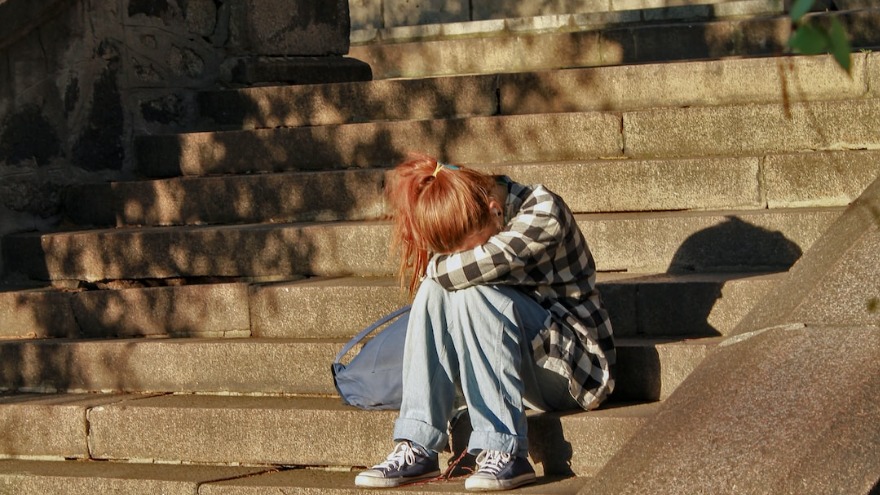Immediate Effects of Divorce on Children
Contents
Divorce affects everyone involved in different ways. During your divorce or separation, your children may act out or withdraw. But divorce doesn’t equate to their “ruin.”
While divorce is said to have psychological and social effects on children, you can still help your children successfully navigate your divorce.
Ultimately, it’s not the divorce that’ll ruin your child, it’s how you handle the situation. While it can be a stressful and emotional event, parenting through difficult times can actually strengthen the bond between you and your child. With the right guidance and a positive outlook, you can make sure your children transition through this change with minimal damage.
Make sure you talk to your children about what’s happening in a way they understand. Be honest and open-minded about their feelings, whether they’re scared or excited. They need space to express themselves too!
In this post, we will walk through how you can prepare your kids for your divorce and help them cope after the divorce is final.
How to Tell Your Kids About Your Divorce
A painful aspect of getting a divorce can be telling other people, especially your family. Telling your kids can be the most difficult. No matter how tough it may be, you want to make sure they hear it from both parents.
To prepare your children, you can:
Plan how you will tell them.
In addition to ensuring you both are present when you tell them about the divorce, you should also decide where and what you will say. You don’t need a script or notecards, but you should have an idea of how you will broach the subject.
Avoid blaming each other.
Even if you are filing fault-based or plan on a contentious custody battle, you should avoid pointing fingers at each other. While honesty is important, blaming can put your kids in the middle and make them vilify one parent.
Reassure them that the divorce isn’t their fault.
Some children may believe their actions or behaviors have caused the rift between you and your partner, so it is important to tell them they are not to blame. Without this reassurance, some children may act out or become withdrawn.
Explain what changes they can expect.
Things are going to change, and you should explain this to your children in as much detail as possible. In your discussion, give your kids a heads-up if one parent plans to move out; if school drop-offs and pickups will be changing; if only one parent will have physical custody moving forward, etc. Just like you don’t want them to be blindsided by your separation/divorce, you also don’t want them to be surprised by other upcoming life changes (big or small).
Remind them how much you love them.
You should also remind your kids that some things won’t change like how much you both love them. Although the dynamics are changing, you’ll always be a family.
Allow them to ask questions.
Your children will probably have questions. Even if not immediately, they will eventually want to ask you for more details about the divorce and the immediate future, and you should be open and honest in your answers.
Give them time to adjust.
If the last few years have taught us anything, it’s that it takes time to adapt to new situations. You and your children will need time to adapt to your eventual divorce and its effects. Research suggests that it takes most adults around 2 years (or more) to recover and move on after a divorce. For children, the recovery time varies greatly based on their age (developmental and biological), support system, and a host of other factors.
Some children, like adults, can move on within a few years, while others struggle for longer periods as they develop and understand the divorce in new ways. However, if you notice concerning behaviors (like aggression or depression) persist long after the separation and eventual divorce, you should talk with your co-parent as well as other adults in your child’s life, such as sports coaches, teachers, and/or family friends.
Ask them if they’ve noticed the same behaviors and document how they act in and out of the home. If the behavior persists without change or worsens, you should consider reaching out to a professional therapist.
Helping Your Kids Cope with Your Divorce
Every child is different, and not all strategies will work for all children. Here are some tips for helping your child deal with the aftermath of your divorce:
Be consistent.
After your divorce, you should honor your custody arrangements. Sticking to your custody schedule can help you and your children get used to the new routine, which is important.
Validate their feelings.
Supporting your child’s feelings is important. Showing them that you understand how they are feeling and making an honest effort to hear them when they express themselves can make them feel seen. In acknowledging their feelings, you can also help them process their emotions. If they express their feelings in ways that you feel are inappropriate, you can walk through other forms of expression.
Be their safe place.
Offer them a place to process their negative emotions. While trying to be positive is also valuable, life and our emotions can be messy and hard. Allow your child to sort through their emotions (good and bad) with you.
Avoid fighting in front of your kids.
Even if you and your ex-spouse are in disagreement, you should not fight in front of your children. You should also try not to talk badly about one another in front of your kids. Arguing or disparaging the other parent in front of your kids can make them feel like they are caught in the middle. In some instances, your child may even adopt negative feelings about one parent.
Organize time for them to spend with friends.
Your kids can gain more confidence, have fun, and find another safe space with friends or teammates. If you enroll them in extracurricular activities or encourage them to spend time with friends, your child can find more support after your divorce.
Tell them how much you love them.
Quality time and loving words can go a long way in supporting your child if they are struggling with your divorce. Through your words and actions, you should tell your kids how much you both still love them.
Final Word
When it comes to discussing the potential effects of divorce on a child, it can be difficult to have an open conversation. Studies have shown that divorce can have both short and long-term impacts on a child’s well-being, so it is important to consider all of the risks before making a decision about divorce.
It is true that children who experience their parents’ divorce may have increased emotional distress than those whose parents stay married. These feelings can range from sadness and confusion to anger and guilt. Depending on the age of the child, the way each parent processes their emotions – and how they communicate them to the child – can also play a role in how much and for how long such feelings of distress are present.
Therefore, even if a couple makes the decision to go through with a divorce, there are still strategies and measures that can be taken to minimize its impact on a child. Building strong communication between parents and children, seeking help from professionals (such as counselors or therapists), and understanding what changes your child may go through as a result of the divorce can all make this transition period easier. Additionally, having an amicable relationship between both parents will help your child adjust to any changes in their daily life.
In the end, no one can predict exactly how a divorce will affect your child. But ultimately, it is important to know that most children adjust and grow into healthy adults despite experiencing the divorce of their parents. With love and support, your family will be able to get through this difficult time together and emerge stronger than ever.







